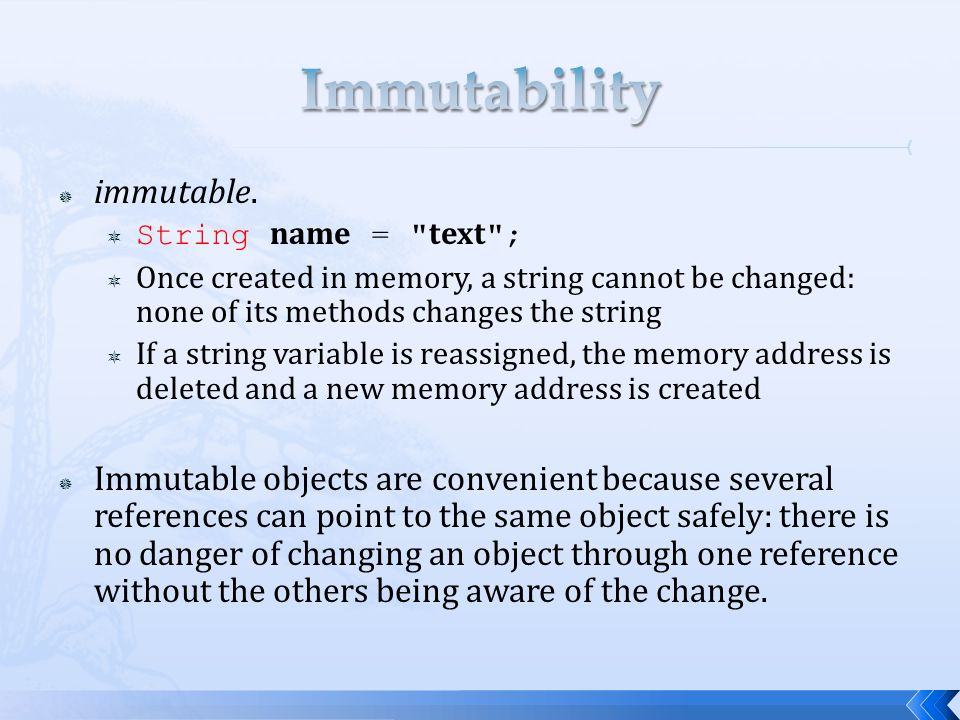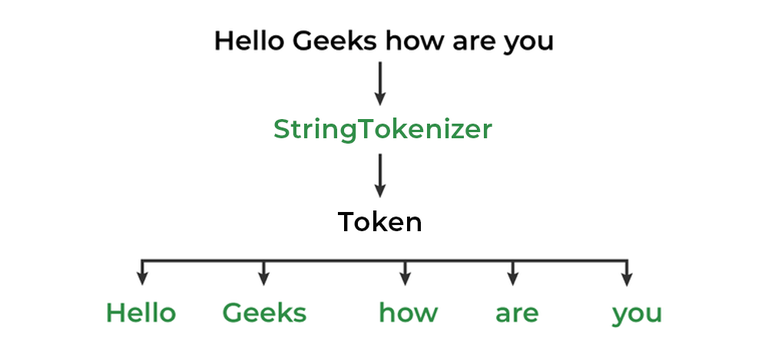Discovering the Benefits of Unalterable Strings in Modern Programming Paradigms
In the world of modern-day shows paradigms, the idea of unalterable strings stands as a foundation of durable software program advancement. By embracing unalterable strings, developers can guarantee enhanced information honesty, enhanced string security, streamlined debugging procedures, enhanced security steps, and reliable efficiency optimization.
Boosted Information Honesty

By preventing the alteration of string items, immutability eliminates the risk of unintended adjustments to the information they hold. This not only improves the protection of the information but additionally improves the dependability of the code that relies upon these strings.
Immutability also supports much safer multithreading settings, as concurrent access to unalterable strings does not pose the risk of data corruption with simultaneous adjustments. This property simplifies the procedure of managing strings in parallel shows scenarios.
Fundamentally, immutability acts as a protective guard around the data kept within strings, boosting their integrity by guaranteeing that as soon as defined, their values stay unchanged throughout the program's implementation.

Boosted Thread Safety And Security
Immutable strings boost the string safety of programs by ensuring that as soon as a string things is created, its worth can not be modified. This residential or commercial property removes the danger of concurrent threads attempting to customize the very same string simultaneously, which could result in data corruption or inconsistent states in the program - Why are strings immutable in Java?. In a multi-threaded environment, where multiple threads access and control data all at once, the immutability of strings gives a degree of safety by guaranteeing that the information stays unmodified throughout its lifecycle
Streamlined Debugging Procedures
Given the enhanced string security facilitated by immutable strings, a significant benefit occurs in the world of streamlined debugging procedures. Immutable strings, as soon as produced, can not be altered, making it easier to map the flow of data and determine the resource of insects in a program. This immutability makes sure that strings continue to be constant throughout the execution of the program, lowering the chance of unanticipated changes that can bring about errors.
When debugging with mutable strings, designers commonly encounter concerns where a string's worth is changed inadvertently, making it challenging to pinpoint the source of an insect. Nonetheless, with unalterable strings, the information stays the same, permitting designers to concentrate on analyzing the real logic of the code as opposed to locating where and when a string was modified improperly.
In addition, unalterable strings streamline the debugging procedure by enabling simpler recreation of bugs. Since unalterable strings do not change state, programmers can recreate and examine pests extra properly, resulting in quicker identification and resolution of problems within the codebase. This structured debugging workflow inevitably adds to greater software top quality and boosted overall development effectiveness.

Increased Security Procedures
Enhancing information defense and strengthening system honesty, the application of immutable strings in software application applications contributes significantly to boosted safety actions. Immutable strings, when created, can not be changed, giving a vital defense against malicious meddling or unapproved access. By ensuring that delicate information saved in strings stays unaltered throughout the program's execution, the risk of information violations or injection strikes is significantly minimized. Why are strings immutable in Java?. Immutable strings also play an essential duty in preventing common protection vulnerabilities such as buffer overflows and SQL shot attacks, as attempts to control string information at runtime are inherently limited.
Furthermore, the immutability of strings enhances the predictability of program behavior, making it simpler to validate inputs and prevent unanticipated adjustments that can compromise security. This predictability simplifies the procedure of bookkeeping and confirming code, making it possible for programmers to identify prospective safety loopholes extra successfully. On the whole, incorporating immutable strings right into software program growth techniques not only boosts the toughness and dependability of applications yet likewise enhances their strength versus protection dangers.
Effective Performance Optimization
When dealing with mutable strings, operations like concatenation or substring creation often result in the production of new string things, leading to memory expenses and raised explanation handling time. By enabling strings to stay unchangeable and consistent, unalterable strings facilitate much better memory management and caching possibilities, ultimately improving the general effectiveness of the software.
Immutable strings also play a vital function in multithreaded settings by promoting thread safety and security. Why are strings immutable in Java?. Given that unalterable strings can not be changed once created, they can be shared throughout threads without the danger of unanticipated adjustments, minimizing the demand for synchronization systems and improving concurrency. Furthermore, immutable strings simplify debugging procedures as developers can trust that a string's value will certainly remain regular throughout the program's implementation, removing possible errors brought on by mutable state changes. Finally, using immutable strings not only enhances safety and security but also considerably adds to the efficient efficiency optimization of modern-day software application systems.
Verdict
In conclusion, the benefits of making use of unalterable strings in modern programming paradigms can not be overstated. Enhanced information integrity, improved string safety and security, simplified debugging procedures, boosted protection measures, and effective performance optimization all add to the general effectiveness of shows tasks. By including immutable strings into programming practices, developers can profit from a more durable and reliable codebase.
Immutability, a key function of strings in programming languages such as Java and Python, guarantees that as soon as a string object is developed, it can not be modified or modified.Immutable strings enhance the string security of programs by making sure that as soon as a string item is produced, its worth can not be websites customized. Immutable strings additionally play an important role in avoiding typical safety and security vulnerabilities such as barrier overflows and SQL shot strikes, as attempts to adjust string information at runtime are inherently restricted.
By enabling strings to stay stable and continuous, unalterable strings assist in far better memory management and caching chances, ultimately check this increasing the total efficiency of the software.
Immutable strings simplify debugging procedures as developers can trust that a string's worth will stay constant throughout the program's execution, eliminating potential errors triggered by mutable state adjustments.